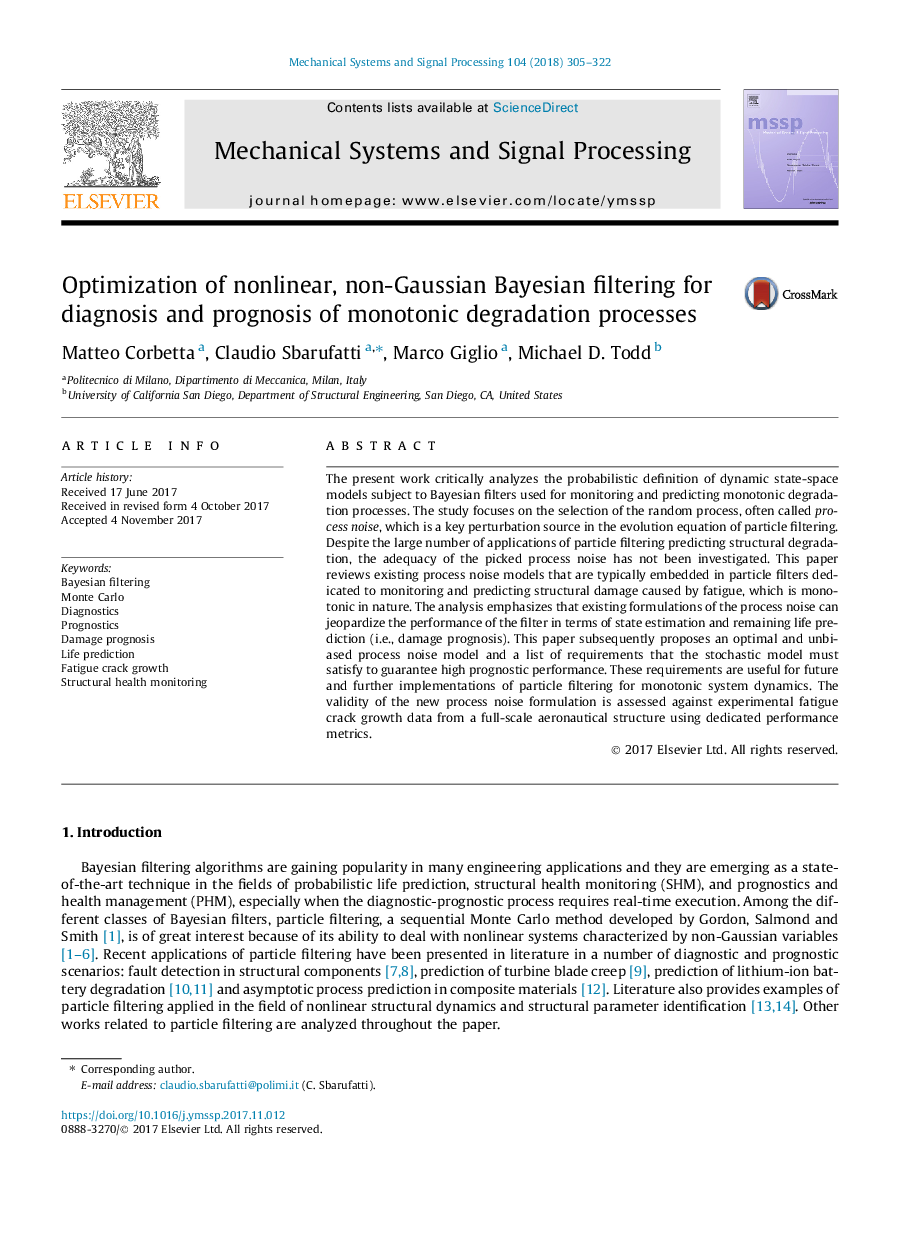| Article ID | Journal | Published Year | Pages | File Type |
|---|---|---|---|---|
| 6954576 | Mechanical Systems and Signal Processing | 2018 | 18 Pages |
Abstract
The present work critically analyzes the probabilistic definition of dynamic state-space models subject to Bayesian filters used for monitoring and predicting monotonic degradation processes. The study focuses on the selection of the random process, often called process noise, which is a key perturbation source in the evolution equation of particle filtering. Despite the large number of applications of particle filtering predicting structural degradation, the adequacy of the picked process noise has not been investigated. This paper reviews existing process noise models that are typically embedded in particle filters dedicated to monitoring and predicting structural damage caused by fatigue, which is monotonic in nature. The analysis emphasizes that existing formulations of the process noise can jeopardize the performance of the filter in terms of state estimation and remaining life prediction (i.e., damage prognosis). This paper subsequently proposes an optimal and unbiased process noise model and a list of requirements that the stochastic model must satisfy to guarantee high prognostic performance. These requirements are useful for future and further implementations of particle filtering for monotonic system dynamics. The validity of the new process noise formulation is assessed against experimental fatigue crack growth data from a full-scale aeronautical structure using dedicated performance metrics.
Keywords
Related Topics
Physical Sciences and Engineering
Computer Science
Signal Processing
Authors
Matteo Corbetta, Claudio Sbarufatti, Marco Giglio, Michael D. Todd,
